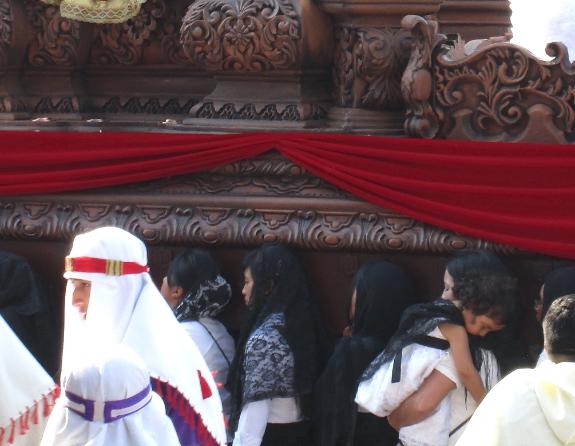
Where We Be
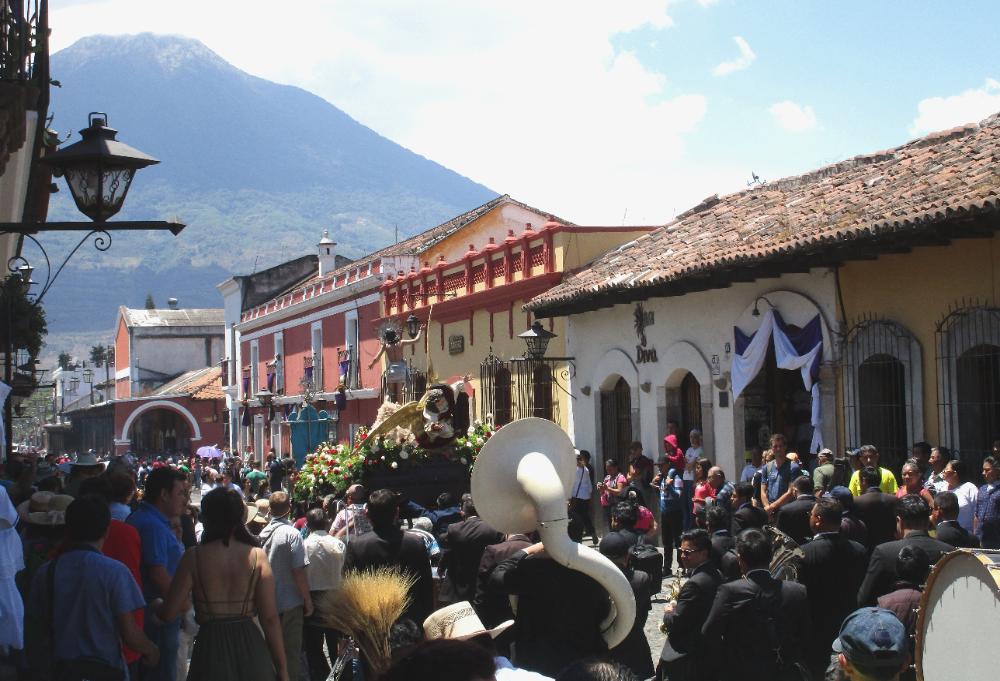
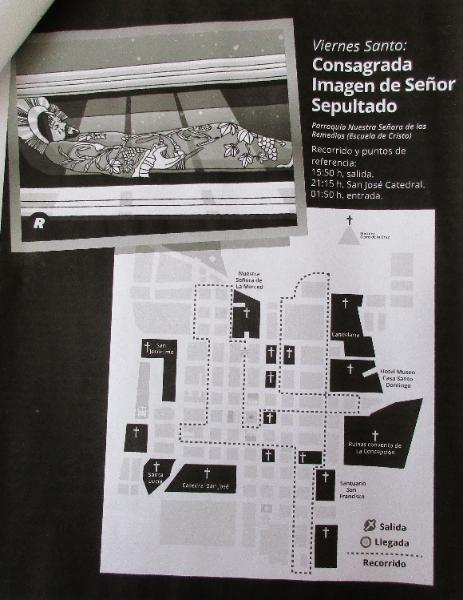
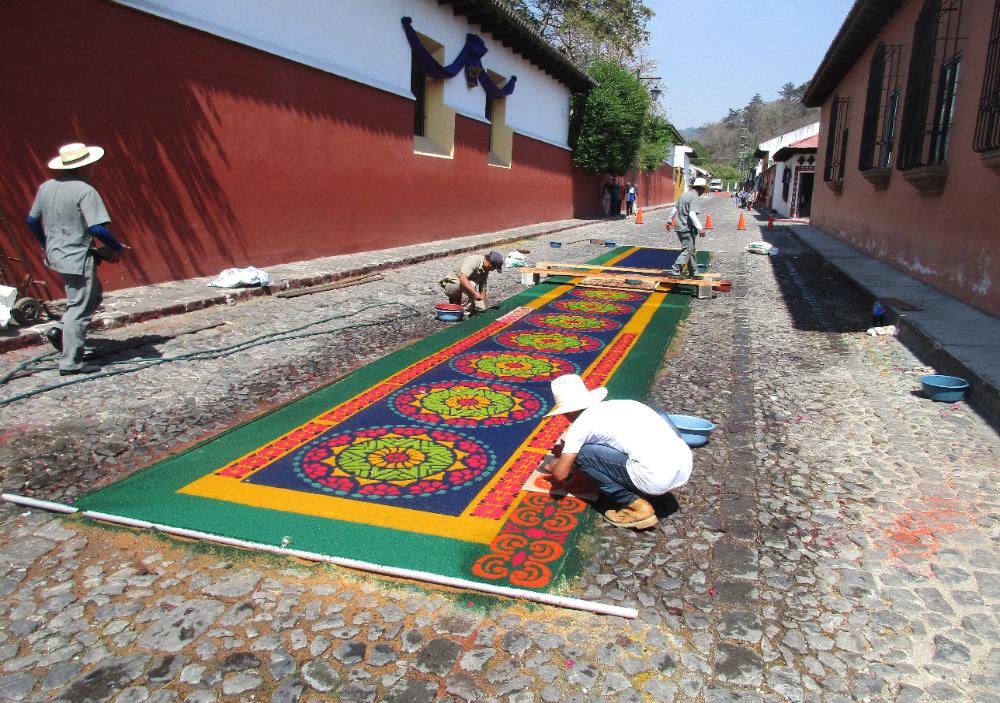
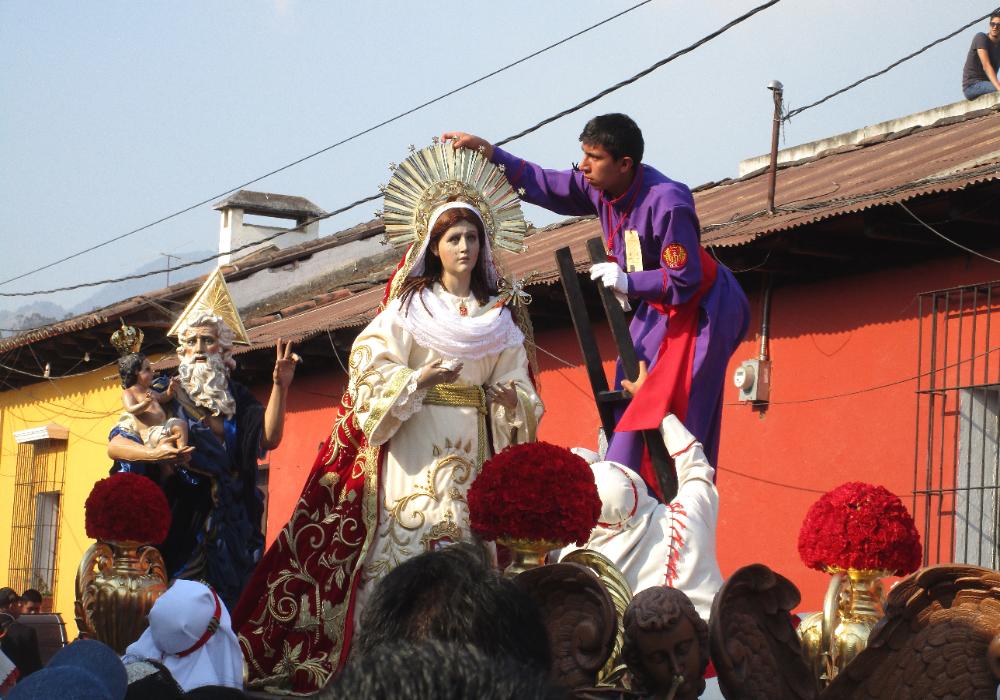
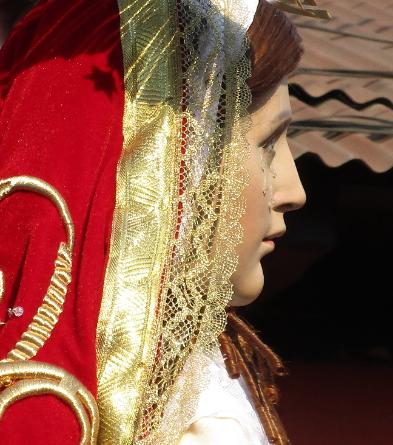
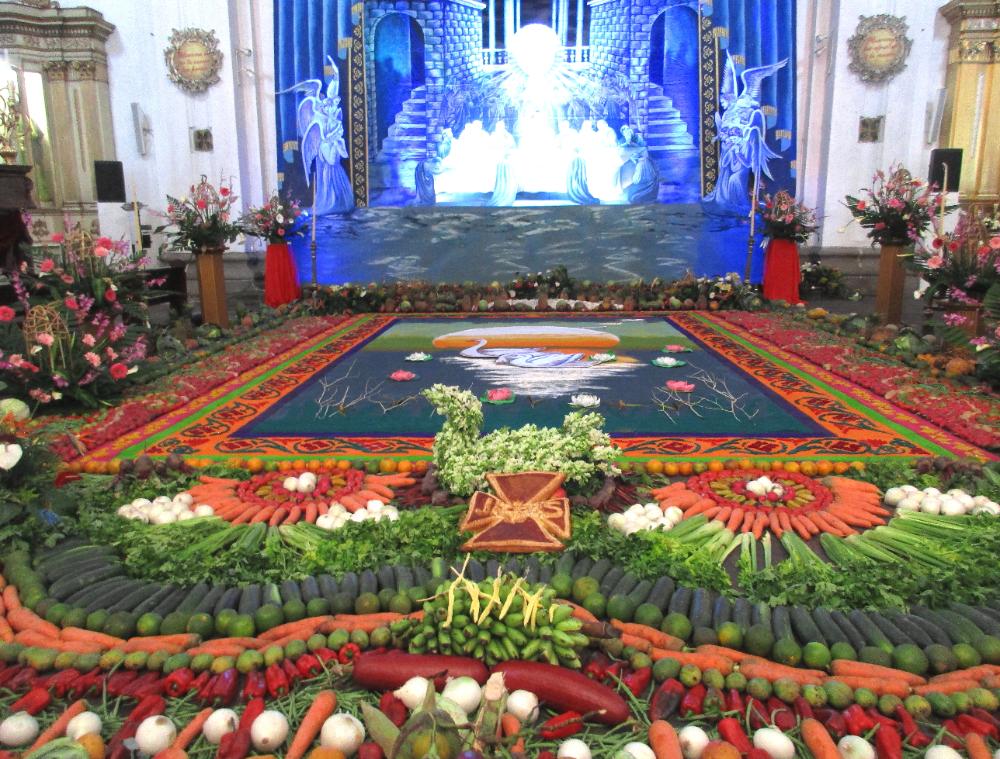
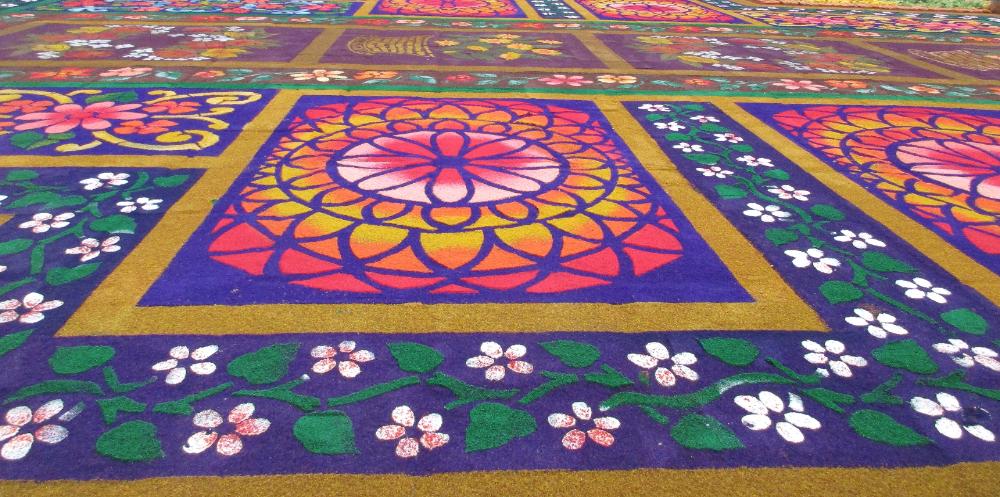
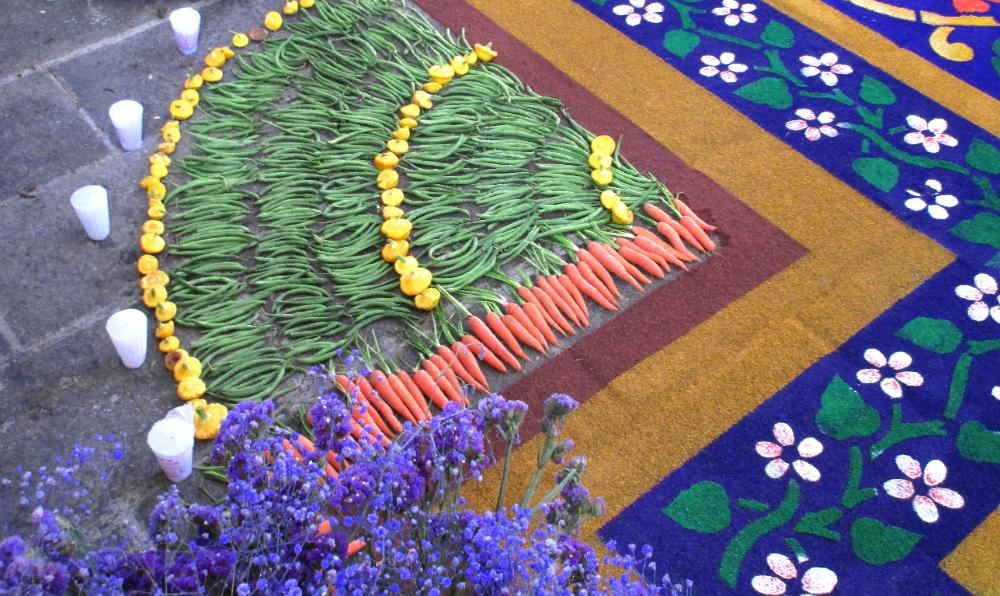
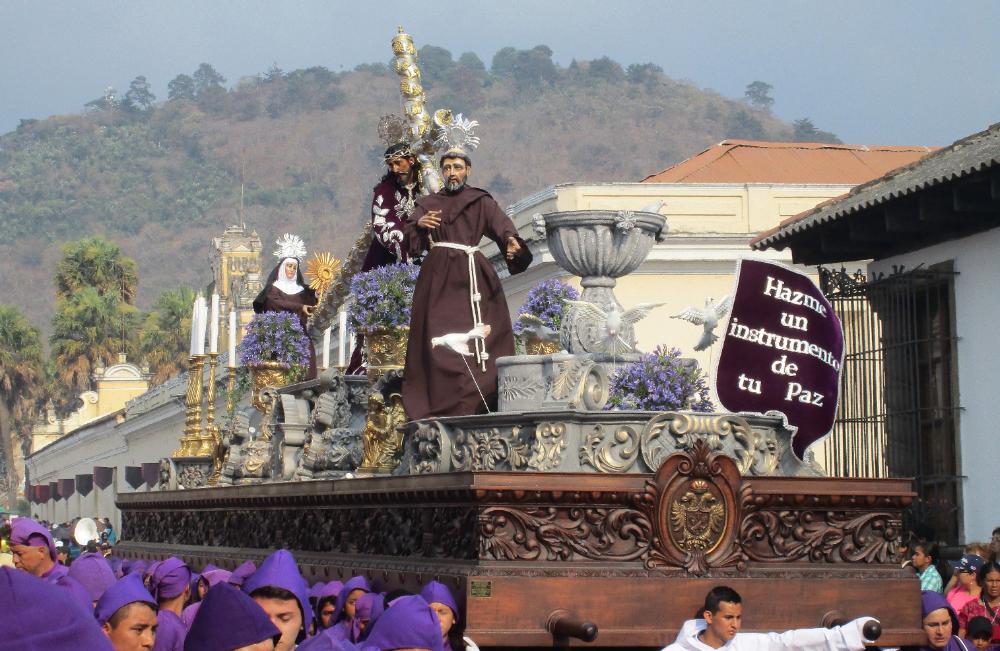
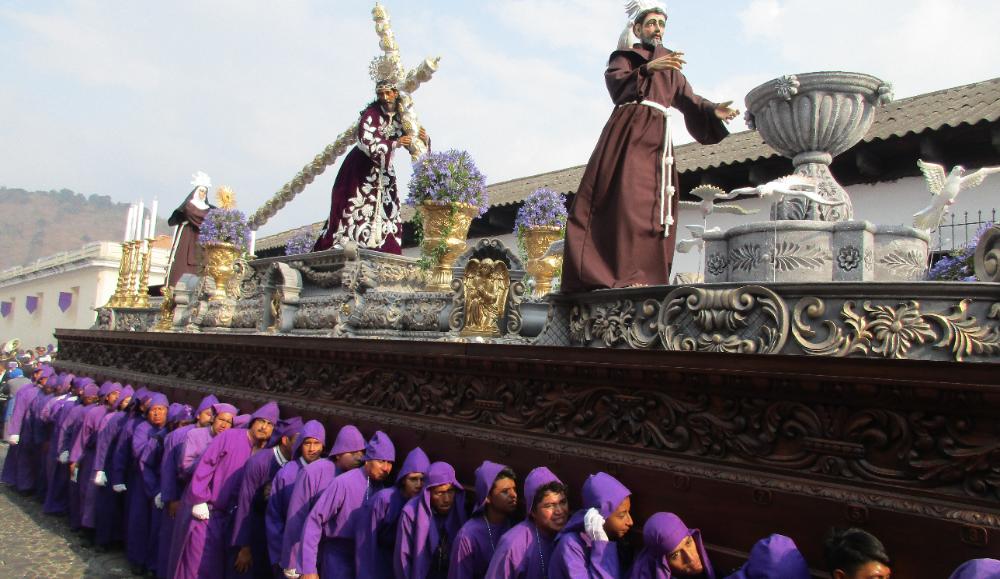
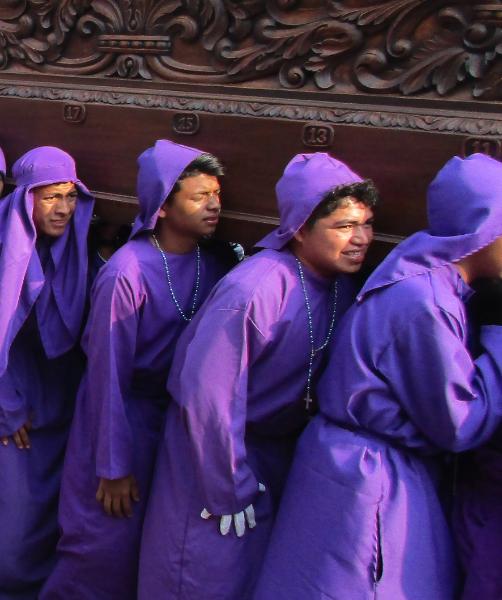
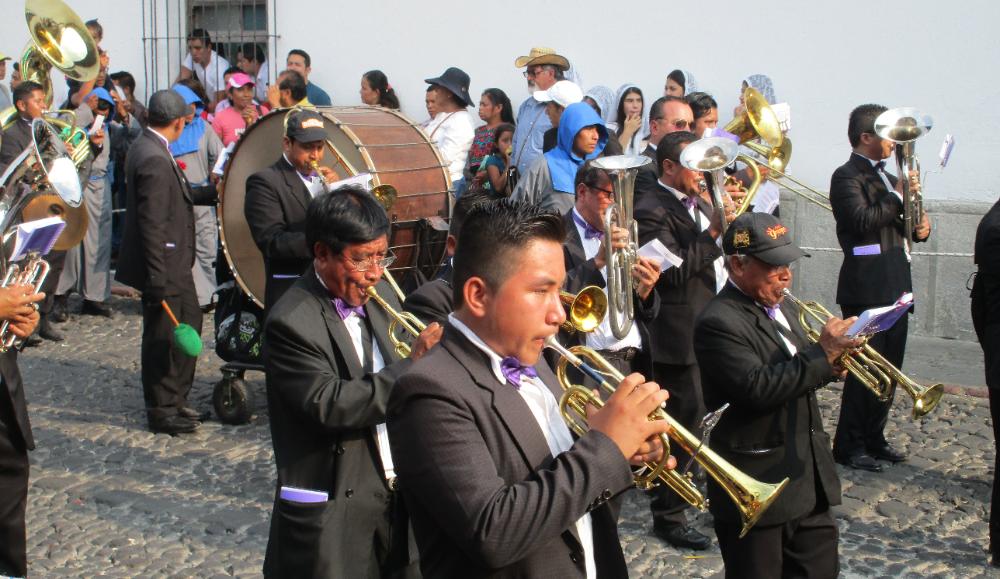
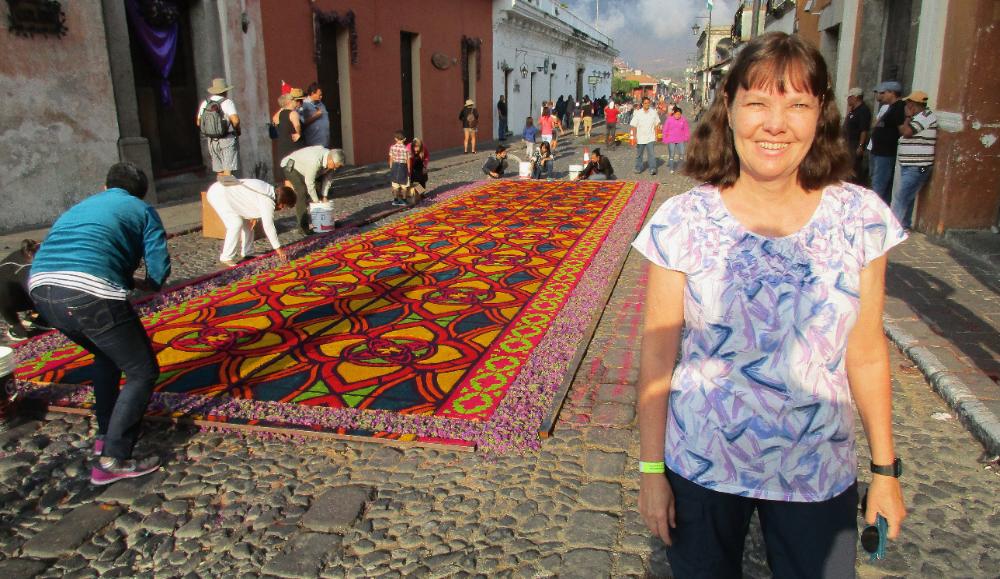
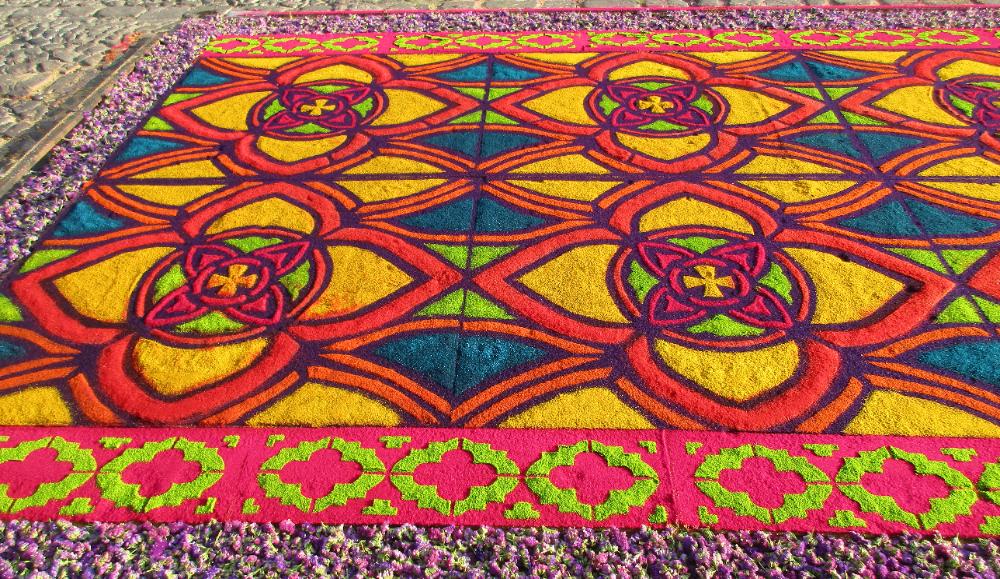
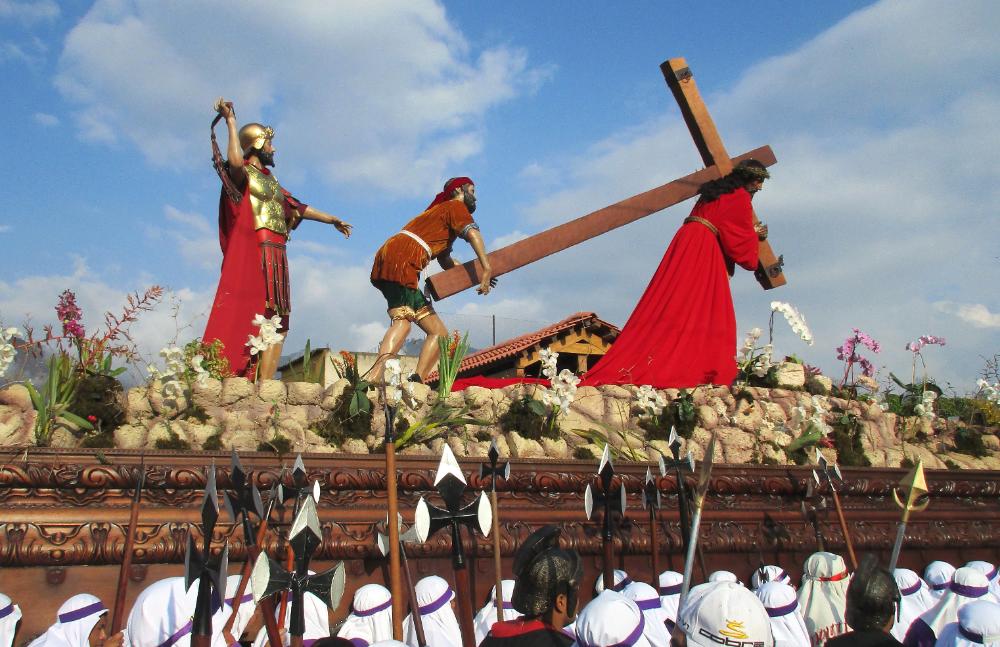
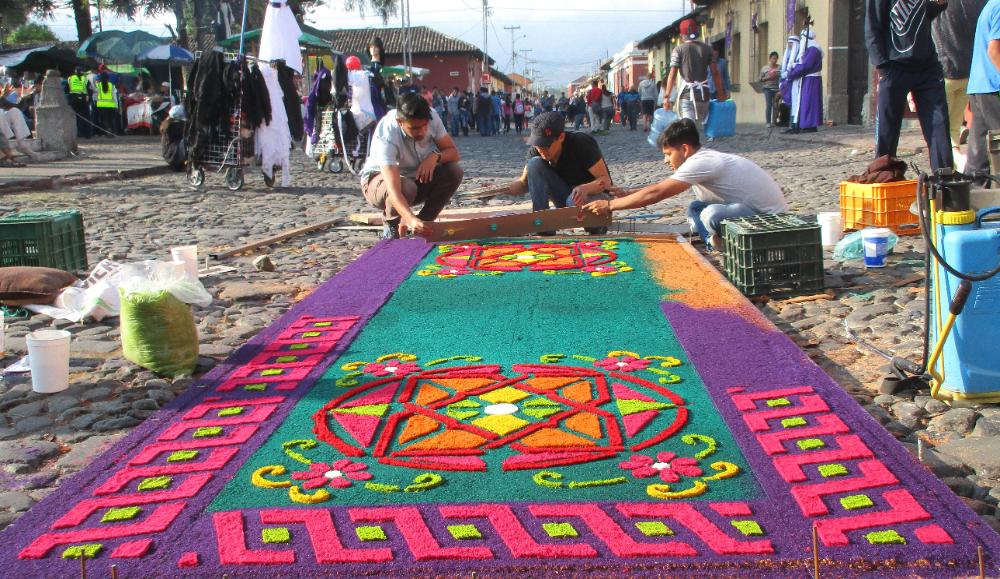
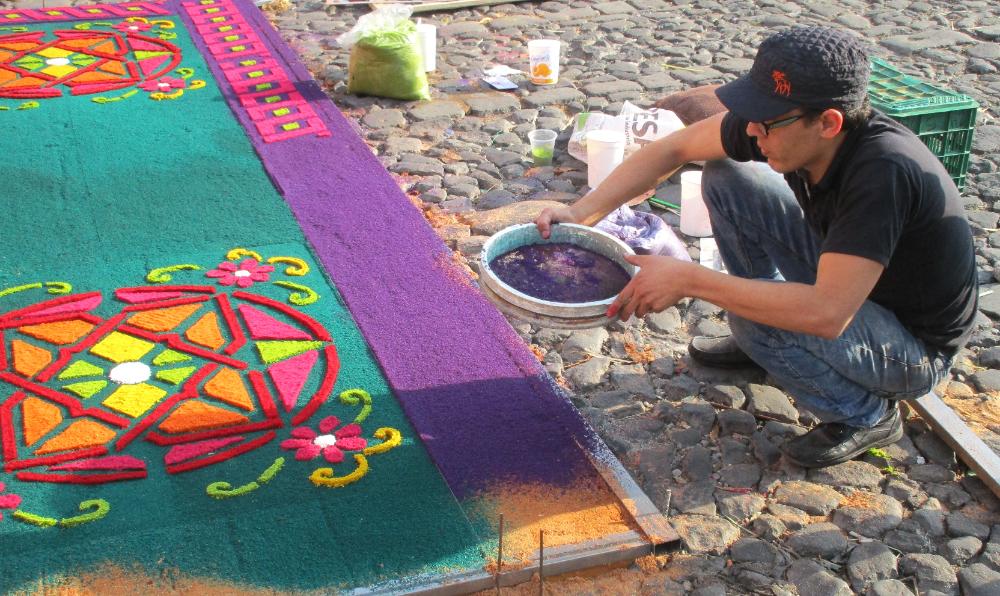
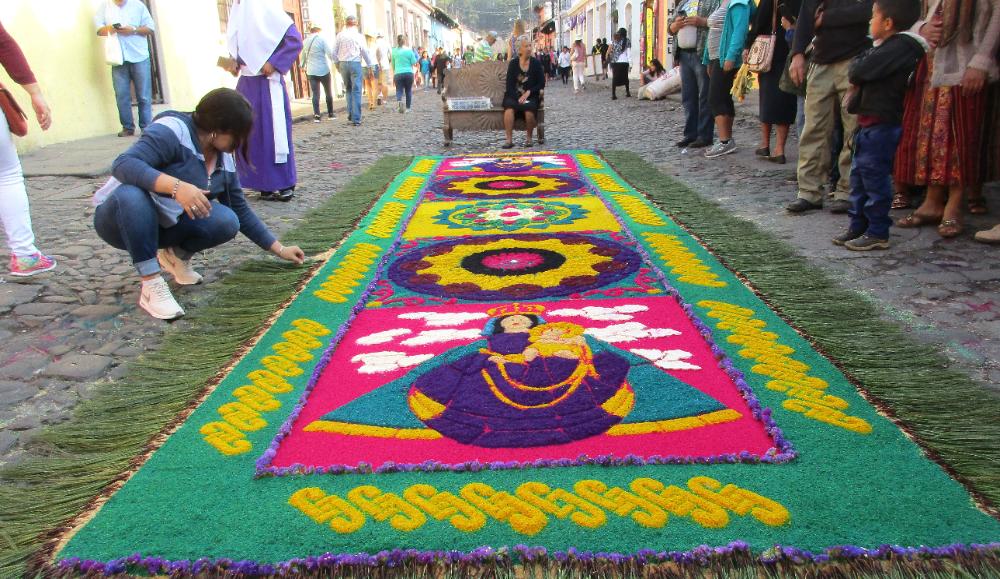
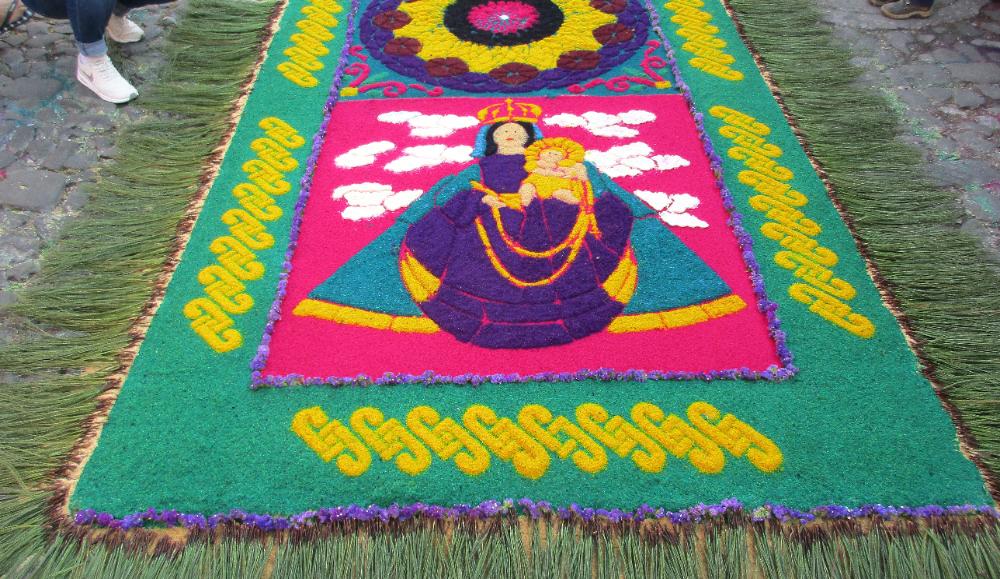
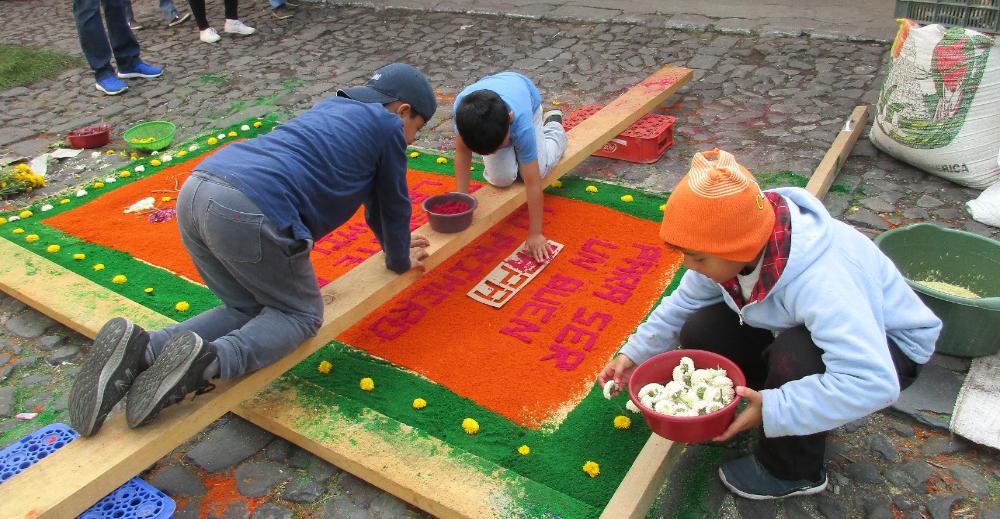
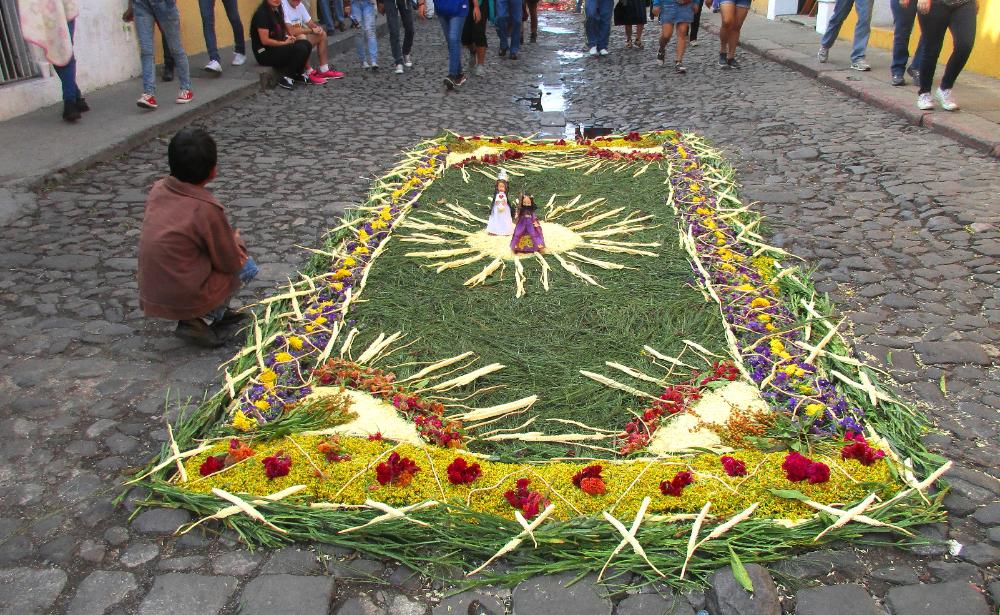
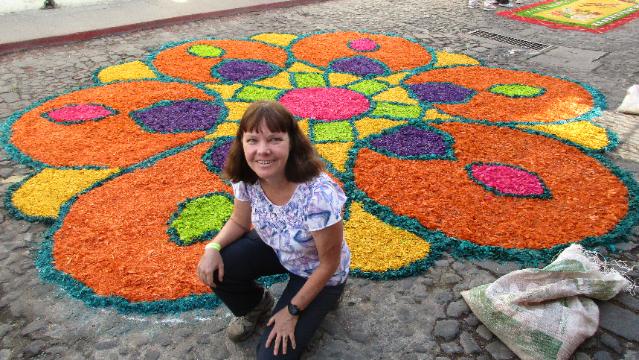
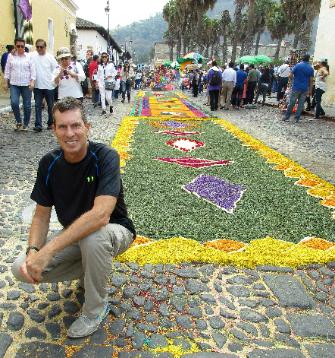

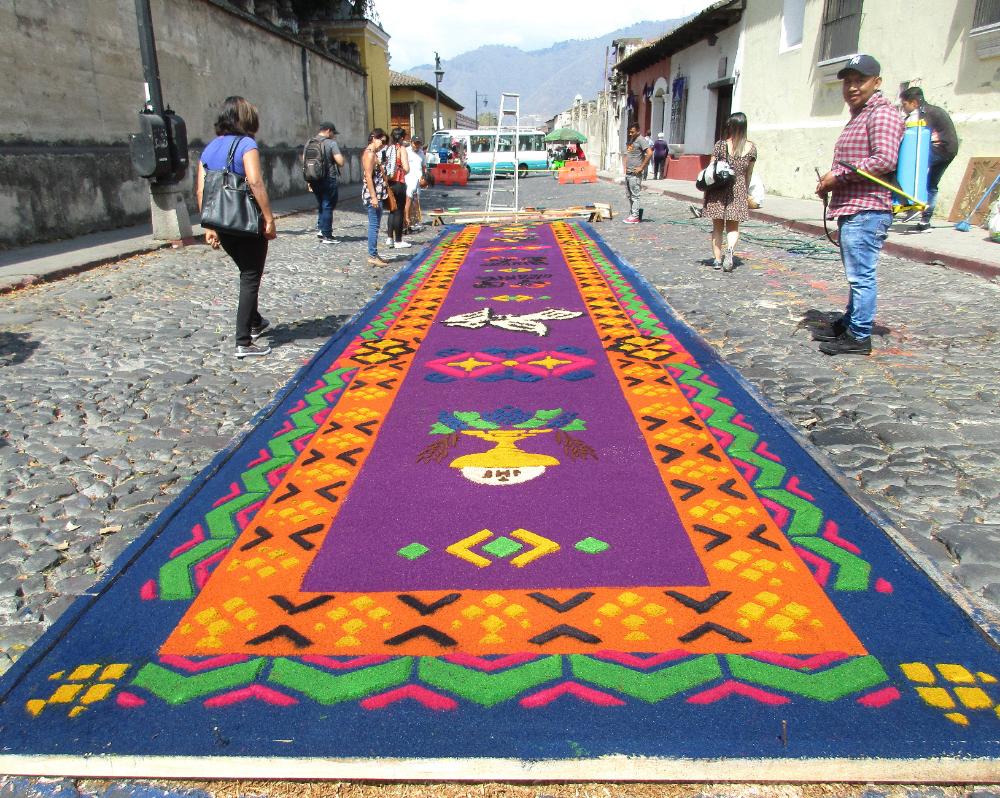
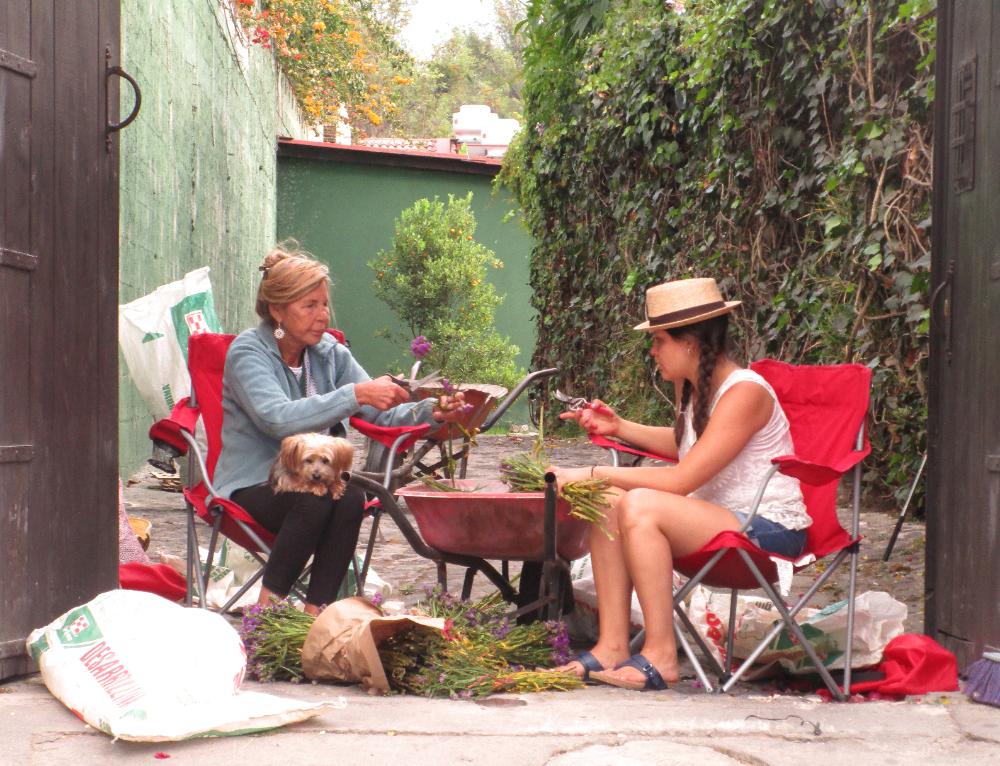
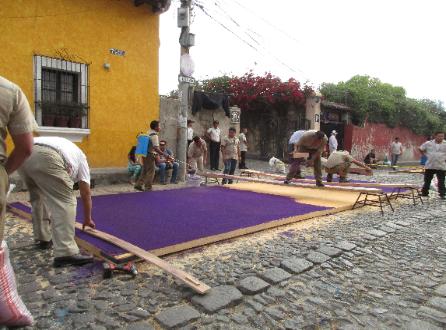
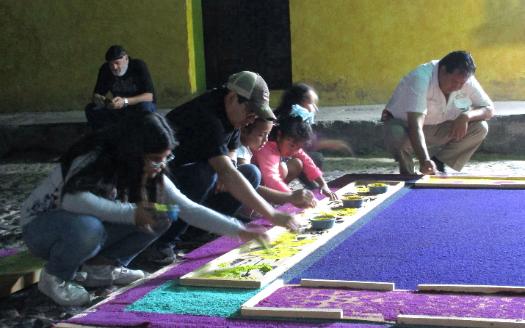
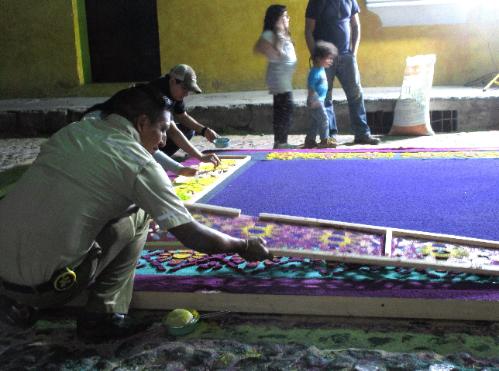
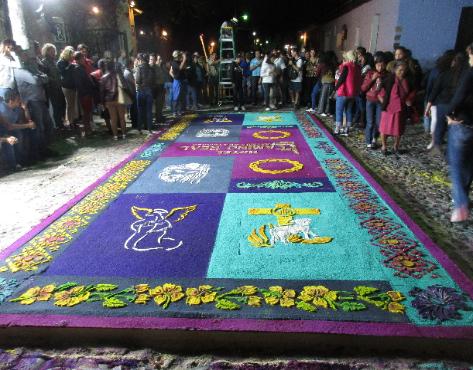
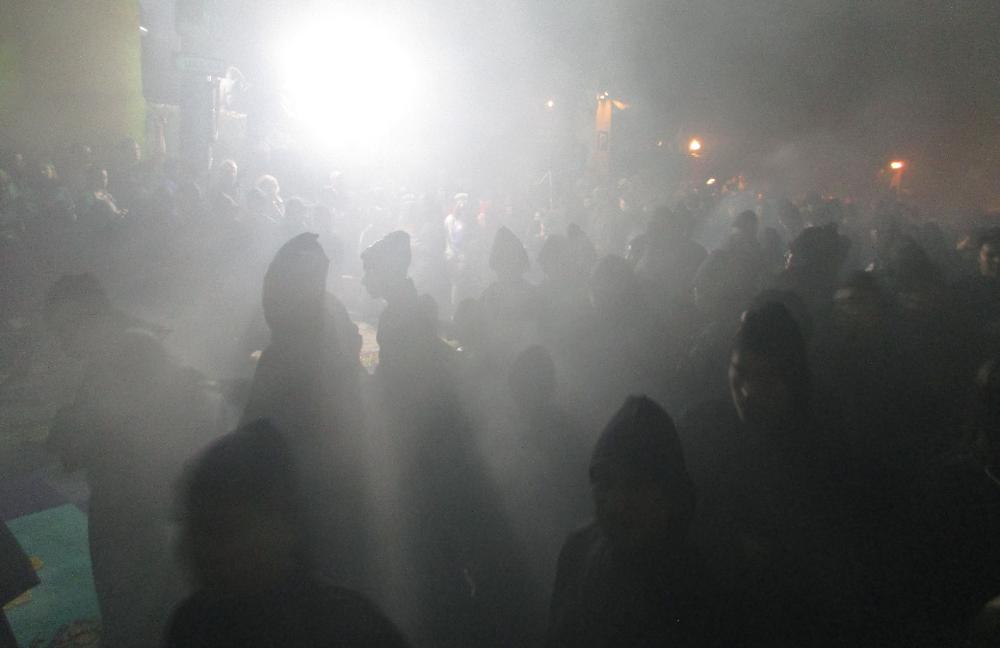
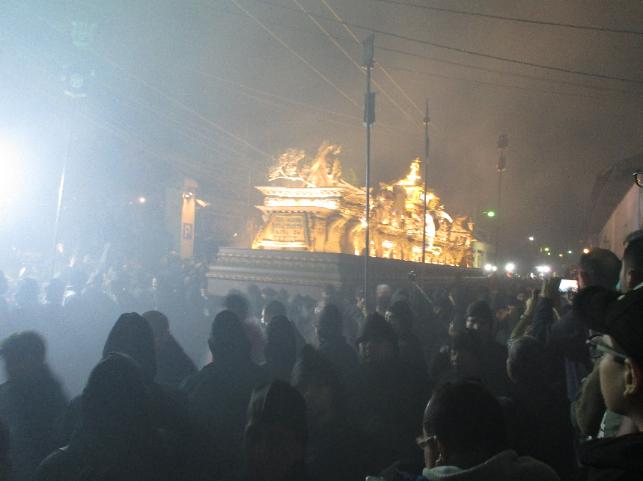
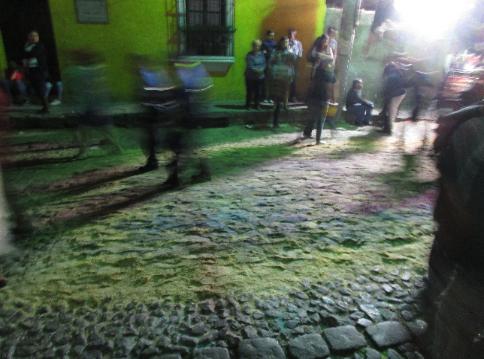
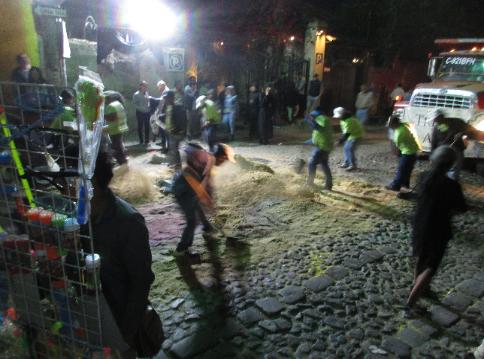
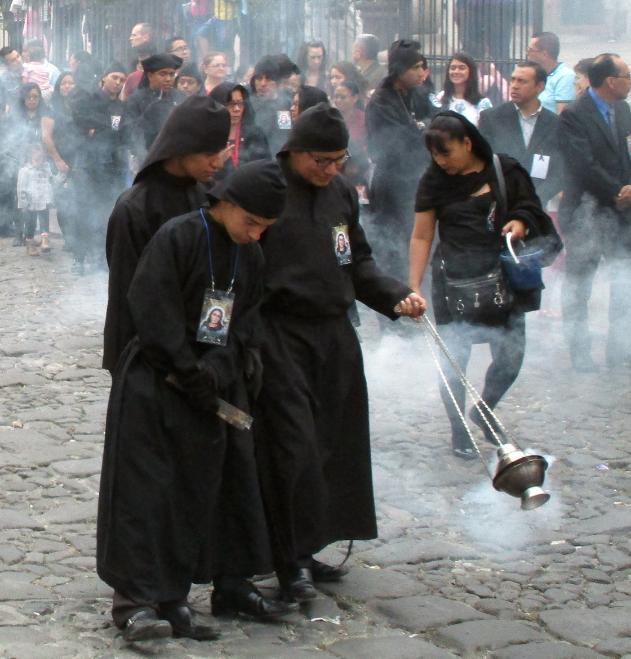
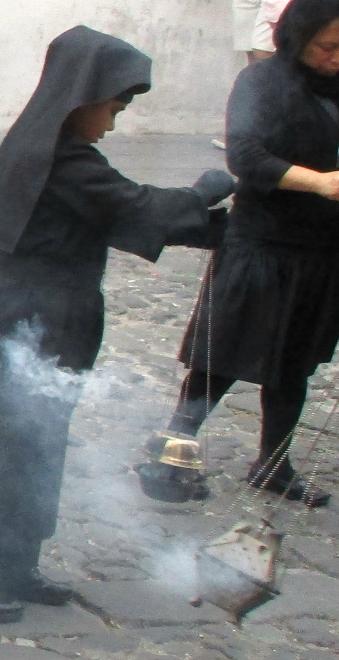
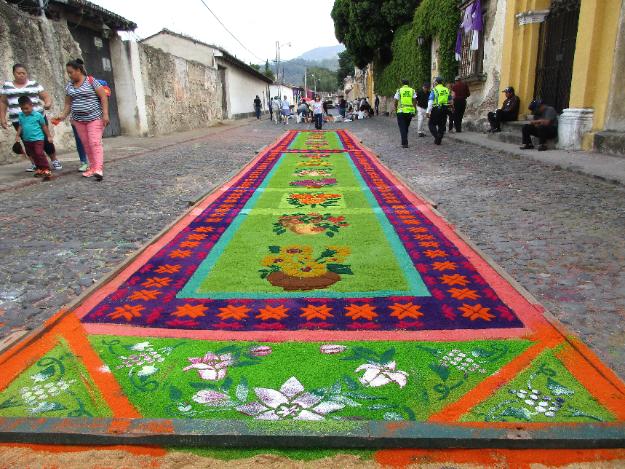
| Robin stands at the far end of a gorgeous carpet made of colored sawdust. As soon as one procession passes, folks start working on the next one! |
| Easter Week -- Antigua, Guatemala |
Some of the most resplendent Easter celebra-
tions in the world take place in the small town
of Antigua in southern Guatemala. Why such a
relatively small colonial town of 50,000 people
should hold such world-famous Semana Santa
celebrations is hard to say, but it all seems to
come together here: a strong Catholic heritage,
family traditions, and community spirit uniting
everyone for one festive yet somber Holy Week.
Without question what we loved most were the
"alfombras," or carpets. Made of colored
sawdust, flowers, pine needles, etc., they adorn
the town's cobblestone streets before each
major procession. We've never seen anything
quite like this anywhere else in the world.
Families and friends gather together, often at
night, to create these intricate carpets, only to
see them purposely trampled into dust hours
later as the processions pass right over them.
The processions themselves continue day and
night and involve heavy "floats" requiring as
many as 100 penitents to carry them. Sorrowful
music and a thick fog of incense add to the
sensory overload. All we can say is, seeing one
of these solemn processions pass by at mid-
night was far more powerful than we expected.
tions in the world take place in the small town
of Antigua in southern Guatemala. Why such a
relatively small colonial town of 50,000 people
should hold such world-famous Semana Santa
celebrations is hard to say, but it all seems to
come together here: a strong Catholic heritage,
family traditions, and community spirit uniting
everyone for one festive yet somber Holy Week.
Without question what we loved most were the
"alfombras," or carpets. Made of colored
sawdust, flowers, pine needles, etc., they adorn
the town's cobblestone streets before each
major procession. We've never seen anything
quite like this anywhere else in the world.
Families and friends gather together, often at
night, to create these intricate carpets, only to
see them purposely trampled into dust hours
later as the processions pass right over them.
The processions themselves continue day and
night and involve heavy "floats" requiring as
many as 100 penitents to carry them. Sorrowful
music and a thick fog of incense add to the
sensory overload. All we can say is, seeing one
of these solemn processions pass by at mid-
night was far more powerful than we expected.
| Here's one still being worked on. Colored sawdust is sifted onto cardboard design templates which are then carefully lifted away. |
| Note the woman holding a sleeping infant in one arm while helping carry a heavy float with the other. Women carry floats depicting the Virgin Mary, men the ones depicting Jesus. |
| Inside the churches are colorful "tapestries" of vegetables -- carrots, squash, red peppers, etc. -- laid out before the altar in lovely designs |
| Exquisite alfombras of sawdust are also featured inside the churches. Even these are temporary, usually only lasting until the parish's procession gets underway. |
| Green beans, yellow acorn squash, and orange carrots decorate a corner of one design |
| This is one of the really big floats, requiring as many as 100 men to carry it. The processions themselves last an extraordinarily long time -- often 12 to 24 hours, with penitents taking turns with the heavy lifting. |
| There are some ten or twelve Semana Santa processions all told, each led by a separate parish. Each parade route is different. |
| Behind each procession, a band plays the exact opposite of any parade music you've ever heard before. This music is mournful and slow. |
| While the processions can be a bit heavy, the alfombras are all sweetness and light. We got up early on Good Friday to see the carpets before they were trampled underfoot. |
| The intricate designs are just stunning. If you like to take photographs you'll really enjoy Semana Santa in Antigua. |
| You can usually hear a procession coming from long away because of all the trumpets and drums. We interrupted our "alfombra walk" to see this one go by. |
| Here's one still being assembled on the morning of Good Friday. We were surprised at how many were still being constructed just an hour or two before the parade was due to come through. |
| This man carefully sifts purple sawdust onto one part of the design |
| This was one of our favorite alfombras. A young woman puts the finishing touches on the frame. An elderly woman sits on a wooden bench -- no doubt the matriarch making sure everything is just so. |
| Such a lovely design depicting the Virgin Mary holding the baby Jesus -- and such careful attention to detail |
| One of the things we liked most was seeing all the kids pitching in to help. Many of these carpets are family affairs. |
| Charming in their own way are some of the simpler carpets, laid straight onto the cobblestones, often by children. |
| Early morning means cooler temperatures and a chance to see the alfombras up close without too many crowds |
| The sign says in Spanish, "If you're thirsty, help yourself to some water." A nice way for locals to reach out to all the visitors from out of town. |
| The man with the portable sprayer keeps the sawdust damp so the design stays in place until the procession. |
| We like this "snippet of life" image of two women trimming flowers for an alfombra while their dog sits comfortably on the older woman's lap |
| Around 7 pm on Good Friday we saw this alfombra just starting to get built. We came back periodically to check it out. Around 9 pm, whole families were hard at work on it. |
| The work finished around 11 pm -- just in time for the big procession coming through at midnight |
| Censers, lots of censers! Hundreds of penitents in purple hooded robes preceded the lit-up float, swinging censers. A single booming drumbeat announced its arrival. |
| These are terrible photos, I know, but they show the trampled carpet just moments after the procession passed. A dump truck follows a short distance behind the procession, and men with shovels quickly clean up the mess. |
| Smaller processions on Saturday focus on the Virgin Mary (i.e., since Jesus is buried). Black-robed penitents wear images of the Virgin Mary around their necks and swing censers. |
| Wow! The amount of detail and precision is astonishing. The carpet's creators gather at the far end looking tuckered out -- they probably worked all night on this. |
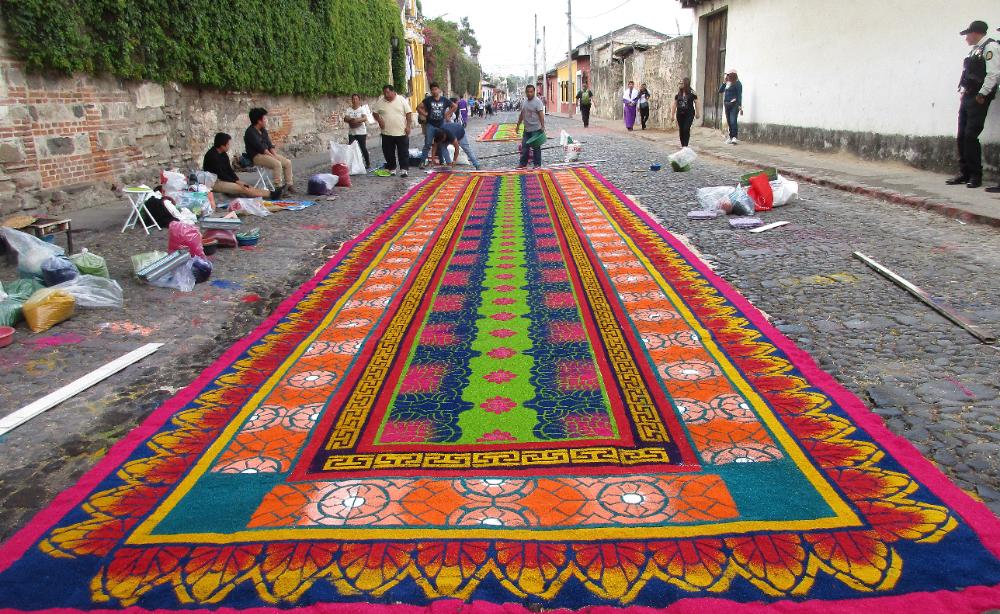
| If you've never attended a somber midnight parade with incense so thick you could choke on it, this is your chance! It was surreal and powerful -- altogether unexpected by us. |
| This was one of the first processions we saw when we first arrived on Palm Sunday. A penitent fixes Mary's crown, knocked askew by a low-hanging telephone wire. |
| Mary sheds a tear for her son. Processions are solemn affairs, except for the smaller festive ones on Easter Day. |
| Good Friday is THE big day here, far bigger than Easter itself. Antigua goes from 50,000 people to nearly 1 million! Some streets become impassable, choked with celebrants. |
| Suffering is a part of the process -- a form of penitence. Imagine wearing these purple robes in 80 or 90 degree heat while bearing this heavy load. |
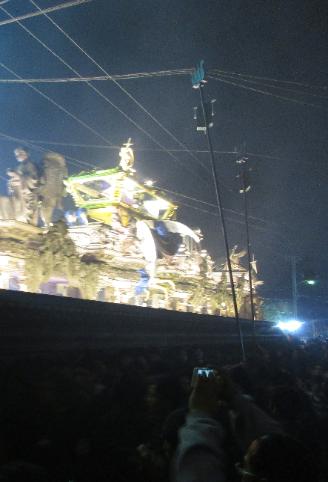
| Tall "pitchforks" were used to raise telephone wires, allowing the float to pass underneath |
| On Easter Day the processions are smaller -- and much more festive. Now the music is joyful. Jesus is risen and Semana Santa is at an end. |
